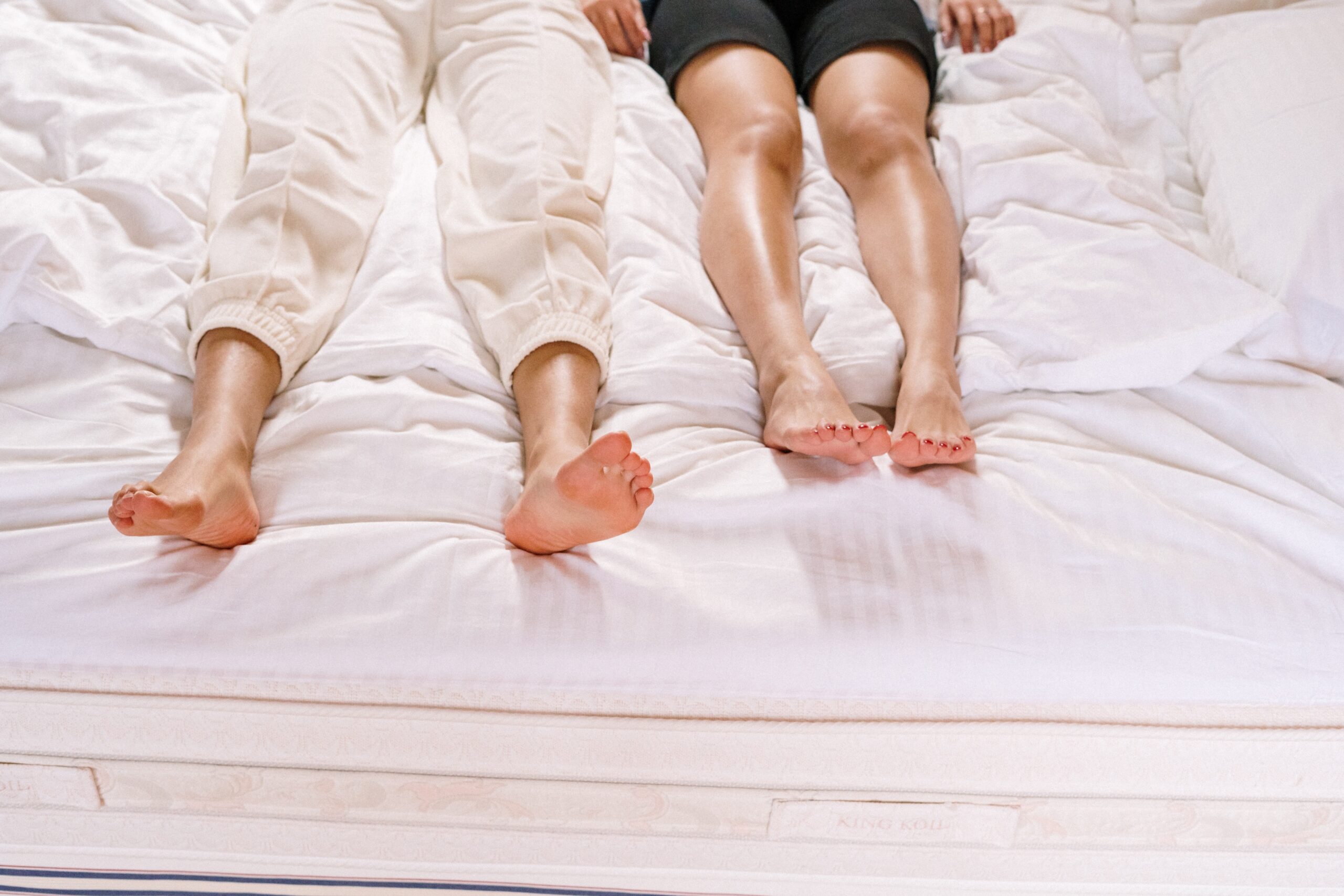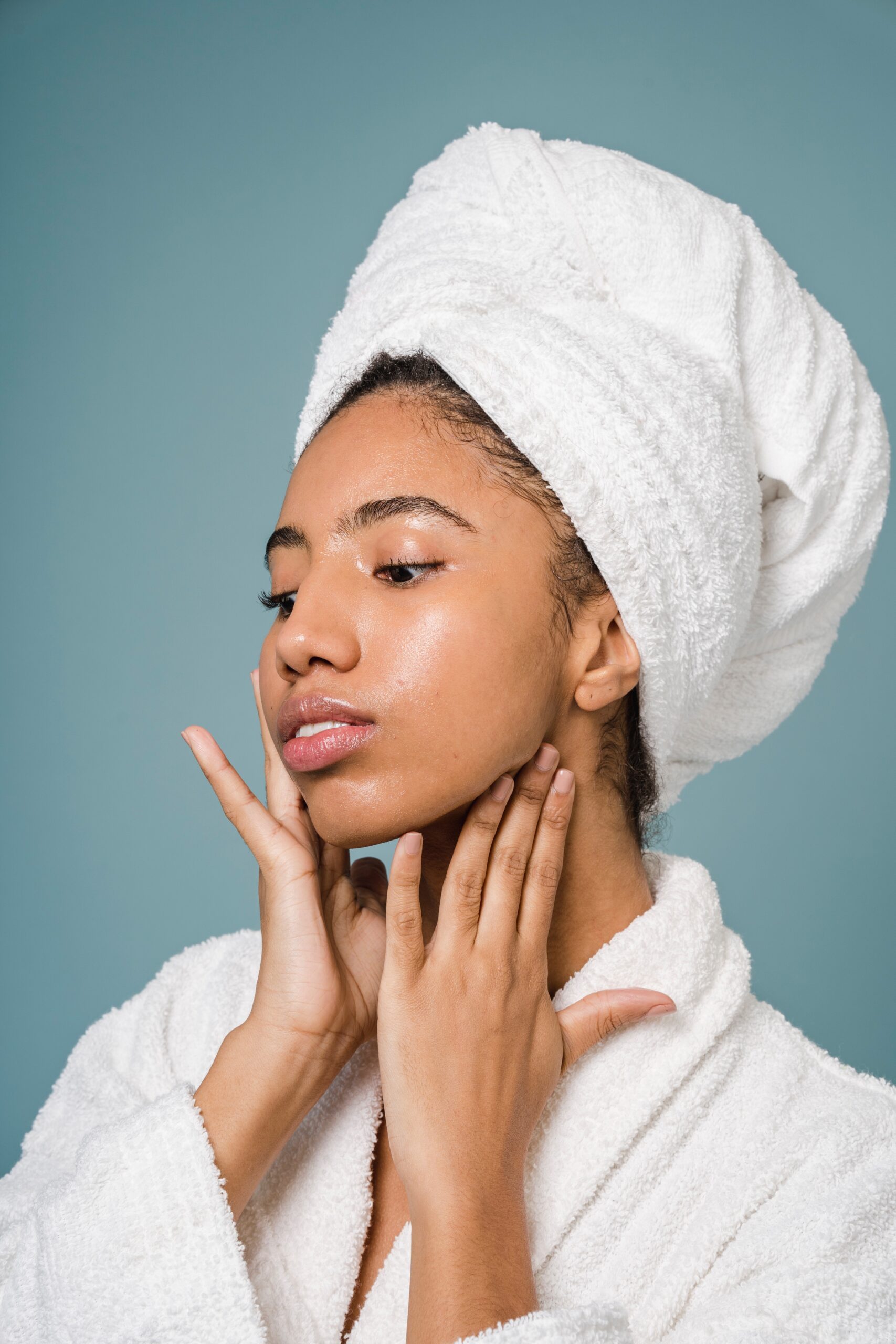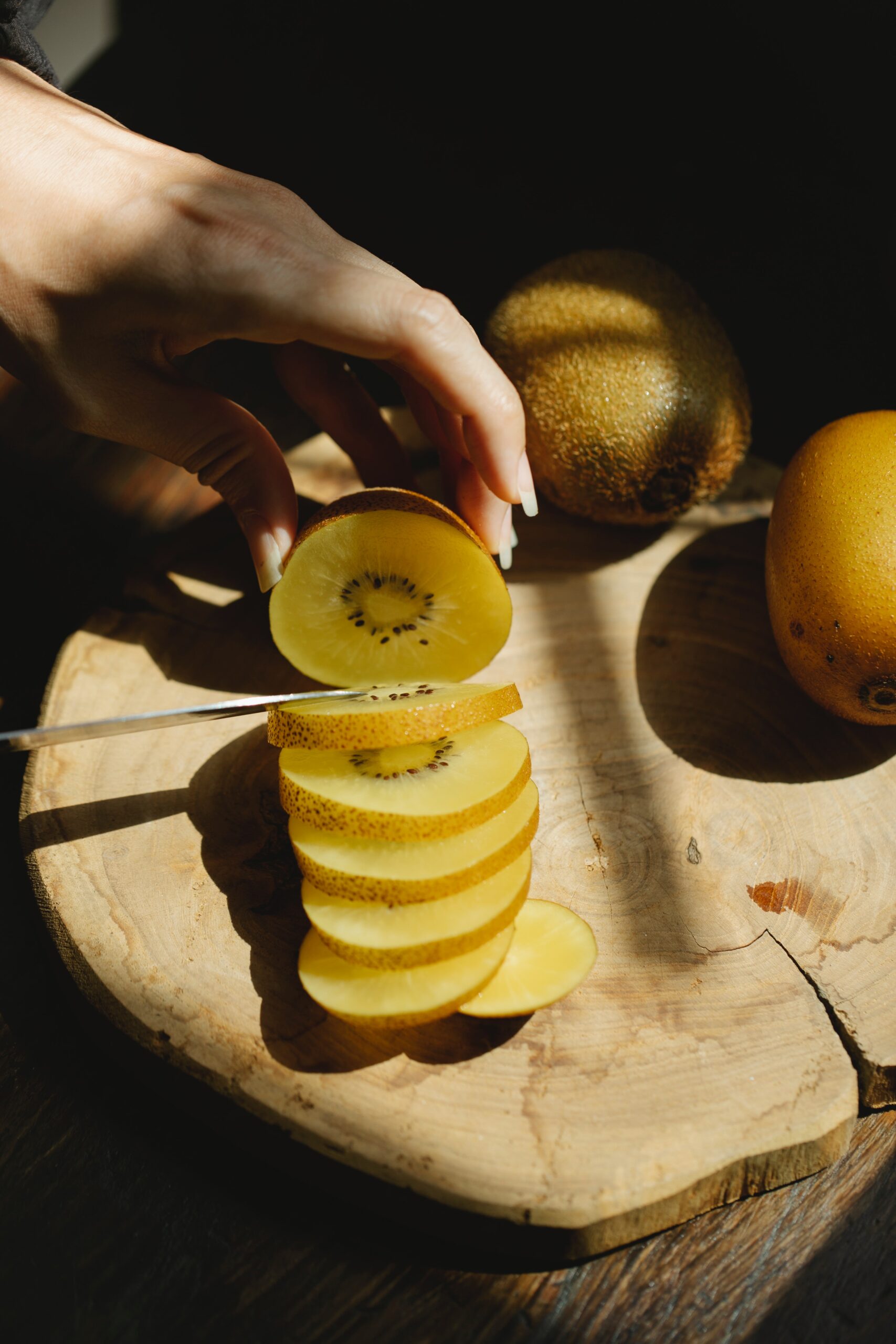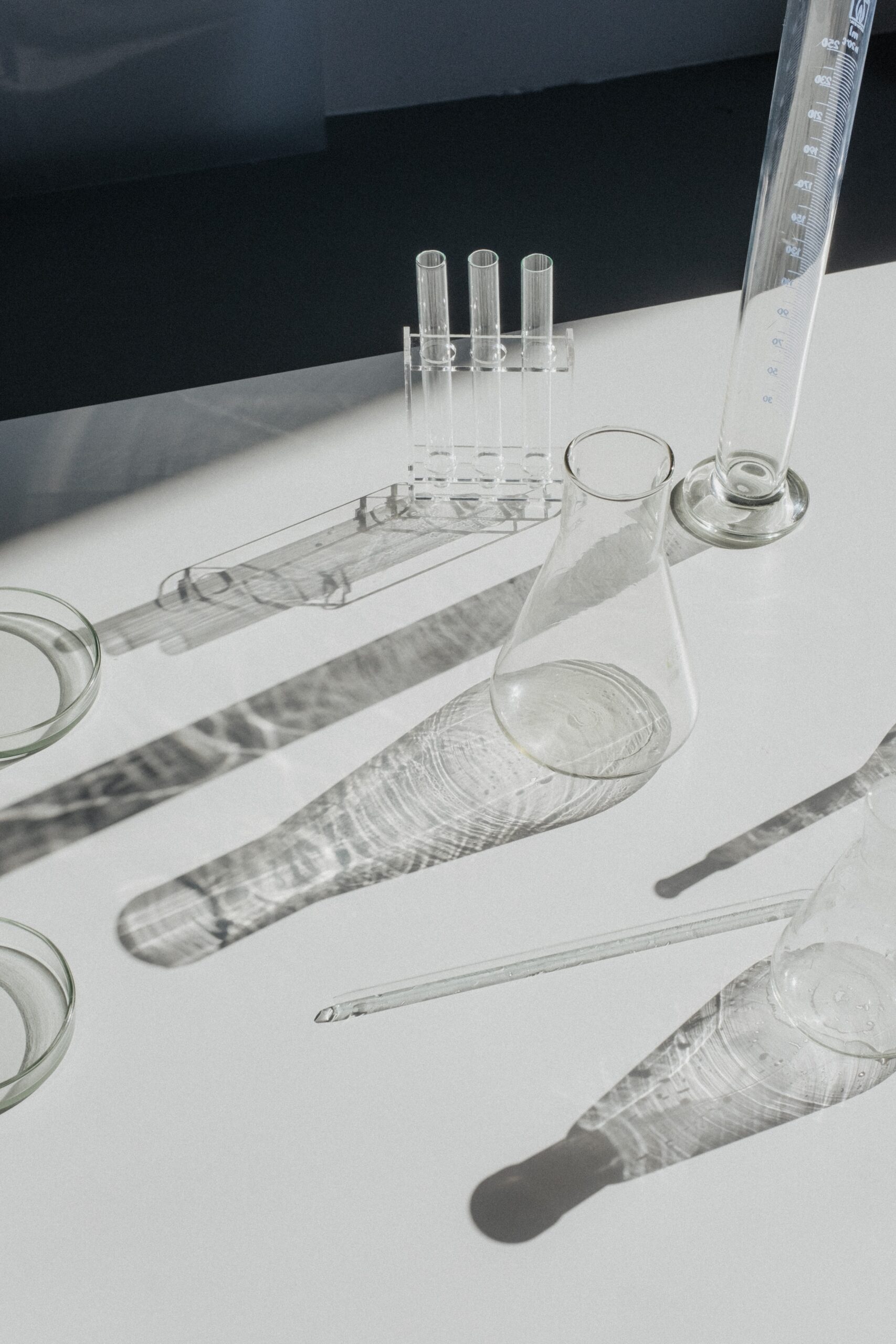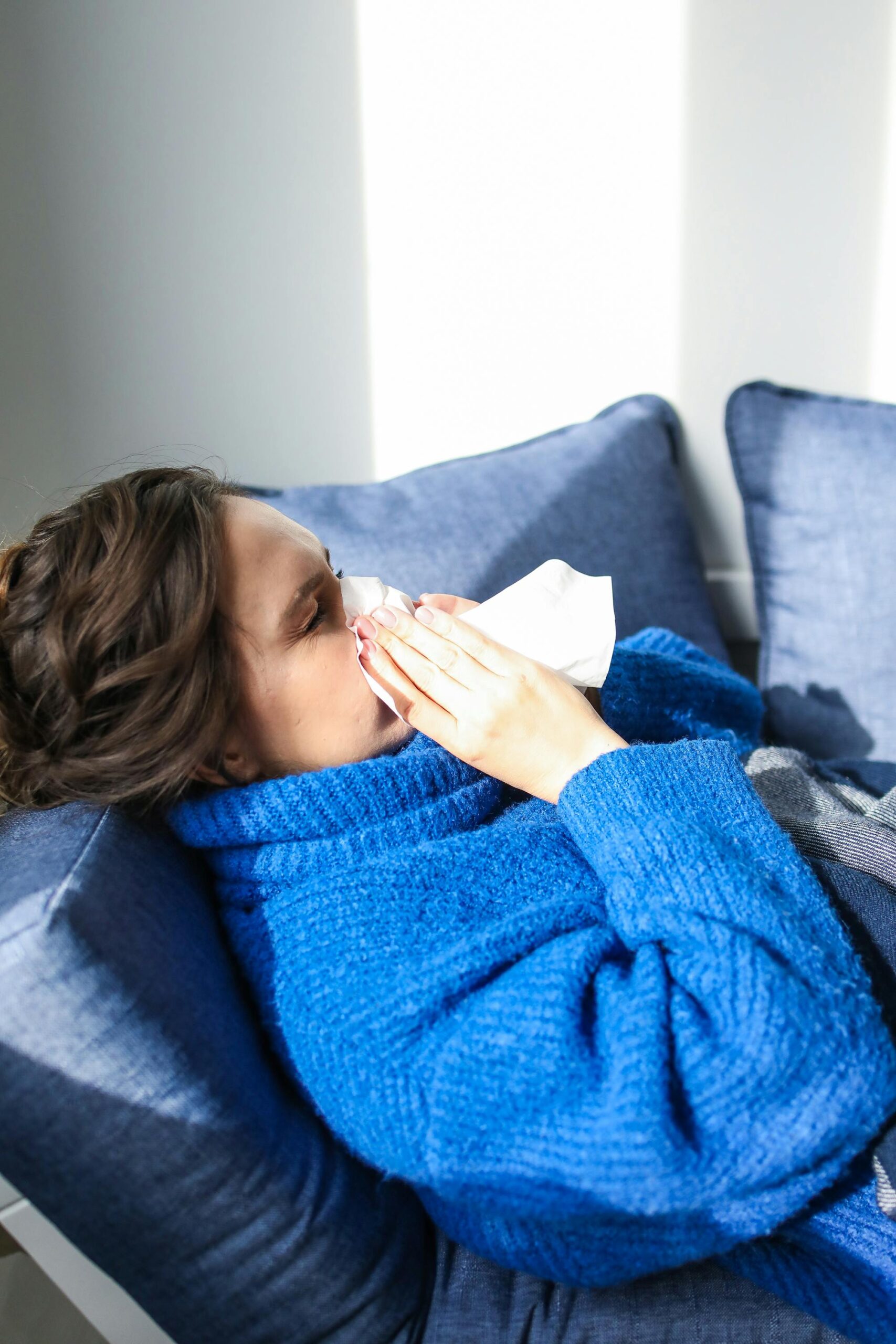Pimples are an undesired part of the human experience and one that I deeply understand. I, like most skin enthusiasts, dealt with severe acne during my teenage years. While most of my peers went on Accutane, I battled it out with a medley of antibiotics, spironolactone, and birth control. I refilled these prescriptions for over a decade despite the fact that – surprise, surprise – I was still breaking out. Each pill that I popped was creating a new problem internally, which was manifesting externally. I wasn’t able to holistically heal acne until I stopped these medications and started overhauling my diet, lifestyle, exercise and supplementation.
My skin struggles laid the foundation for my passion – and compassion – as a functional medicine practitioner and registered dietitian. Today, skin is one of the top concerns that I address with clients. It is also one of the most frustrating, as it often gets worse before it gets better and occasionally takes some trial and error. But once you reach the finish line, you will agree – being able to walk right out of the house without a care in the world about your concealer-free face, makes the hard work worth it.
In this article, I’m going to walk you through the seven steps that I tend to take to holistically heal acne with my clients. As always, please keep in mind that the content that I share is generalized. Every client that I work with is unique, and the concepts that I present here are nuanced. So, in order to get the most effective results without spinning your wheels – I highly recommend working with a professional at Birchwell who takes the time to understand your health from the inside out. Using advanced lab testing, nutrition, supplements, and lifestyle changes, we address why your acne is occurring in the first place, instead of simply medicating or masking your symptoms. You gain actionable, enjoyable strategies and a powerful understanding of your mind and body. Book a non-obligation discovery call here to chat with one of our practitioners and see if our functional health consulting is right for you.
1. Assess external factors
99% of clients have already started with this low-hanging fruit, but I would be remiss if I ignored it here. I always make sure that my acne clients are discussing their topical regimen with a board-certified dermatologist and/or experienced esthetician. I often see overuse of active ingredients – particularly, combining retinol with exfoliants – lead to damaged skin barrier. Oftentimes, we need to take a break from the fight and just focus on soothing and restoring the skin barrier with simple moisturizing ingredients such as ceramides or hyaluronic acid. Then, you can gradually layer in one active at a time, ideally under professional guidance.
Other overlooked external acne triggers include:
- Pillowcases. Sleep with a silk pillowcase, wash it every 2-3 days with a gentle, fragrance-free soap, and air-dry. No shame in the high-maintenance game.
- Makeup. Save the concealer and foundation for special occasions and let your skin breathe whenever you can. I find that it also really helps mentally to just embrace and accept that your skin – right now, in this very moment, not forever – is not how you want it to be, but that’s okay.
- Heat. This can be from water or air (I know, I love hot yoga and saunas – but my skin does not). If you are a heat seeker, keep your face out of it when possible, and only wash with cold water.
2. Balance your blood sugar
Sugar, or glucose, in our blood is important – it’s our bodies’ preferred fuel source for nearly everything – from moving, to thinking, to breathing. Our blood sugar ebbs and flows throughout the day. It rises when we eat carbohydrates such as grains, potatoes, fruits – even vegetables. It falls when we are fasting.
We want our blood sugar fluctuations to resemble soft, rolling hills. This stabilizes our energy levels and regulates our hunger/fullness cues. However, once blood sugar management starts to look more like spikes and crashes – systemic problems arise. Specific to skin, poor blood sugar management leads to inflammation and endocrine issues- both of which drive breakouts.
Balancing blood sugar is critical to holistically heal acne. It can be simple, but that doesn’t mean it’s easy. Here are my top tips:
- No naked carbohydrates. Always pair carbohydrate-rich foods with fat and/or protein to help stabilize blood sugar. For example: instead of eating fruit alone, pair it with yogurt and/or nut butter.
- Keep a regular eating schedule. Eat every 3-5 hours, ideally around the same time every day. Going too long between meals leads to low blood sugar: cue anxiety, weakness, and cravings.
- Reduce added sugars. This includes any ingredients added to food purely for the purpose of sweetening such as sugar (coconut, cane, etc.), syrup, honey, agave, etc. Nutrition facts labels now separate sugars from added sugars.
3. Replace common food triggers
Let me start by saying that I’m not a fan of fixating on food sensitivities and/or arbitrary elimination diets. I’m a root-cause practitioner, which means that instead of asking, “What foods are causing your health issues?” – I ask, “Why are these foods causing trouble?” I believe that the best diet for you is the one where you can eat the widest variety of foods without experiencing signs or symptoms. However, in my practice I do see these four common dietary acne triggers:
- Dairy. Consumption of milk, yogurt, and cheese has been linked to increased risk of acne. This is because dairy products increase insulin and insulin-like growth factor-1 levels, both of which can induce excess sebum secretion. If you already have impaired insulin sensitivity and/or excess male sex hormones (i.e. testosterone or other androgens), then dairy can be extra problematic for you. However, dairy products are nutrient-dense; they are excellent sources of protein, calcium, and other vitamins and minerals. So – if you can tolerate dairy just fine, please don’t cut it out.
- Gluten. There are various indirect mechanisms by which gluten-containing foods can lead to breakouts, but it mostly comes down to the gut. Increased intestinal permeability (AKA “leaky gut”), is becoming more common, is exacerbated by gluten consumption, and ultimately leads to systemic inflammation. While removing gluten is a great first step, it is essential to also address the gut as a whole (more on this later on).
- Alcohol. Please don’t shoot the messenger – but skin does not like alcohol. Alcohol increases inflammation, leads to dehydration, and impairs sleep quality. Yet, alcohol is often embedded in socialization – and socialization is an underrated, key factor in overall health. I encourage my clients to look beyond the bar: meet friends for walks, smoothies, workouts, museums, concerts, etc. And if you are going to drink, stick to two or three drinks (depending on your tolerance), one or two nights per week.
- Added sugar. See above.
Instead of eating or drinking dairy, gluten, alcohol, or added sugar – focus on an anti-inflammatory diet to holistically heal acne. The majority of your intake should come from fresh produce (vegetables & fruit), high-quality proteins (fatty fish, poultry, red meat, eggs), healthy fats (nuts, seeds, plant oils, avocados), and minimally processed starches (sweet potatoes, gluten-free grains). Add flavor with spices and herbs; boost sweetness with stevia or monk fruit.
4. Add micronutrient supplementation
Optimal levels of nearly all vitamins, minerals, and fatty acids are essential to holistically heal acne. Certain micronutrients play particularly important roles and deserve special attention:
- Vitamin A. Nearly everyone with acne has been prescribed topical vitamin A (AKA retinol) – but boosting intake of real vitamin A (not just beta-carotene) is often an essential step in healing acne for good. Vitamin A acts as a powerful antioxidant, meaning that it helps combat free radicals and speed the healing process. It prevents breakouts that are driven by bacteria and/or oil while supporting the skin’s barrier and immunity. You can find dietary vitamin A in whole eggs and fatty fish – but one of the best sources is actually… liver. That is why some practitioners recommend desiccated liver supplements. I mostly use liquid retinyl palmitate droppers and titrate the dosage according to lab levels. Keep in mind that vitamin A is a fat-soluble vitamin (along with vitamin D, E, and K), so supplementation needs to be carefully monitored by a professional to avoid toxicity.
- Zinc. This mineral plays an important role in everything skin – wound healing, UV protection, combating inflammation, and acne quelling. Adequate zinc levels also promote hormonal harmony, which is essential for clear skin. You can eat your zinc through oysters, red meat, poultry, beans, nuts, and seeds. However, many people can benefit from a supplement – ideally a chelated zinc, as it is well tolerated and absorbed. Zinc supplementation needs to be closely monitored alongside copper levels; the two minerals compete for absorption, and an excess in one can lead to a deficiency in another. In fact – copper deficiency is one of the most underrated contributors to acne that I see in my day-to-day practice.
- Omega-3s. These fatty acids can help reduce acne by fighting inflammation and promoting a healthy skin barrier. The best dietary source is fatty fish like salmon, tuna, and sardines (my personal favorite). However, therapeutic doses of omega-3s can have a more substantial effect, particularly when extra anti-inflammatory support is needed. Be very choosy about the manufacturer when purchasing an omega-3 supplement, and choose a product that contains both EPA and DHA. Talk to your doctor first if you are on any blood thinning medications.
Additionally, other highly underrated nutrients for acne include:
- Vitamin B3
- Vitamin E
- Vitamin D
- Magnesium
- Potassium
Be choosy when purchasing supplements; choose high-quality, professional-grade brands. My favorites are Pure Encapsulations, Thorne, Ortho Molecular, Metagenics, and Designs for Health. You can buy these supplements with a 10% discount and free shipping from my virtual dispensary here.
Instead of playing guess and check, my favorite way to add targeted micronutrient supplementation or specific food recommendations is by running a NutrEval by Genova Diagnostics or Micronutrients Panel by Vibrant America.
5. Address gut health issues
Whenever I have a client who complains about acne, I take a look at the gut – regardless of whether they are experiencing digestive issues. Poor gut health is a stealthy yet substantial contributor to various skin issues, particularly eczema, psoriasis and acne. Some ways by which poor gut health contributes to acne include:
- Inflammation. Pathogens such as bacteria, fungi, viruses and parasites can lead to systemic inflammation. Also, as discussed earlier, leaky gut – caused by parasites or other variables such as medications, toxin overload, stress, etc. – can further exacerbate your body’s inflammation.
- Flora. Just like your gut has a microbiome, your skin does as well – and the two are intrinsically linked. Having excess amounts of pathogens, particularly in relation to beneficial bacteria, can drive bacterial or fungal acne.
- Nutrient deficiencies. Bacterial overgrowth can impair nutrient absorption, leading to deficiencies. Inadequate stomach acid, bile, or digestive enzyme output can also contribute. As discussed above – healthy, clear skin requires optimal nutrient status. Remember: you are not what you eat – you are what you digest and absorb.
- Hormonal imbalances. Inflammation and nutrient deficiencies can cause issues with adrenals and sex hormones – but the gut/hormone connection goes beyond just that. The gut and brain are directly connected and constantly communicate via the vagus nerve. As a result, stress in the gut is interpreted as stress in the brain. And since the brain (specifically, the hypothalamus) controls the endocrine system – hormonal chaos ensues (more on hormones next).
I wish I could say that healing the gut is as simple as popping a probiotic and eating some kimchi. The gut is extremely complex, and everyone has a unique presentation – so it’s extremely important to work with a professional (like a functional medicine dietitian at Birchwell) who will run comprehensive and scientifically-sound testing and work with you individually to create a plan that is tailored to you in order to holistically heal acne that is driven but GI dysfunction.
6. Correct hormonal imbalances
Similar to gut issues, I always assess my acne warriors for hormonal imbalances because they go hand-in-hand (partly due to that strong gut-hormone connection). Some telltale signs that your acne is being driven by your hormones include:
- Your breakouts happen on a monthly basis, generally aligning with your menstrual cycle.
- Most of your acne resides near your jawline or chin.
- You get cystic acne, which are painful pimples that form deep under the skin.
- Stress is a major acne trigger for you.
While various forms of hormonal imbalances can lead to acne, here are the most common scenarios that I see in my practice:
- High androgens. Excess testosterone leads to excess sebum production. If paired with other symptoms such as irregular cycles or excess facial/body hair growth, then I recommend additional testing for polycystic ovarian syndrome (PCOS), as this might be the cause. I also tend to see this occur post-birth control as androgens surge.
- Estrogen dominance. Estrogen and progesterone are supposed to ebb and flow harmoniously throughout your cycle. When something is out of sync and that delicate balance gets thrown off, your skin takes a hit. I often see estrogen dominance trigger breakouts in women due to interference with progesterone’s inhibition of dihydrotestosterone (DHT), a more potent androgen.
- High cortisol. Stress induces the release of a hormone called corticotropin-releasing hormone (CRH), which can bind to receptor cells on the skin and drive up oil-induced breakouts. Also, chronic stress can cause elevated DHEA levels, which can further increase androgens.
Addressing hormonal issues really requires an upstream approach, as they are usually the consequence of nutrition and/or lifestyle choices. However, certain supplements can be really helpful to holistically heal acne depending on your specific case. If I had to choose only one supplement to help with each of the above, it would be:
- Inositol (high androgens). While small amounts of this nutrient are found in the diet, at therapeutic doses it can work wonders on balancing hormones – particularly for PCOS. One of the main ways that it does this is by improving insulin resistance. I recommend doing a blend of both myo-inositol and D-chiro-inositol in a ratio of 40 to 1, which is the naturally occurring ratio in the body.
- DIM (estrogen dominance). Diindolylmethane (DIM) is a compound found in cruciferous veggies. It works on phase 1 of estrogen 1 detox, in turn helping lower estrogen in the body. This can be extremely helpful for women who have high estrogen in relation to progesterone, but it’s not the full-stop solution. Why? Because the way that you metabolize your estrogen through phase 2 and phase 3 is also extremely important, and often needs additional support. That’s why I like to run a DUTCH test before incorporating DIM. (This should go without saying, but do not take DIM unless you are working with a practitioner as it can make hormonal issues worse in certain cases such as amenorrhea or menopause.)
- L-theanine (high cortisol). L-theanine is an amino acid found in tea, especially green tea – giving you another reason to start your day with matcha. It acts on the brain to promote relaxation and calmness, which can indirectly help lower chronic stress responses. Since it doesn’t cause drowsiness, you can take it in the morning and/or at night. I love to use it to help with anxiety-induced sleep disturbances.
7. Support detox & drainage
The word “detox” often gets an eye roll, but that’s only because it’s been twisted to sell silly juices and unnecessary supplements that are not rooted in science or personalized to patients. In reality, we are in a constant state of toxin overload, so our bodies are always working to take out the trash. It does this through our liver, kidneys, lungs, lymphatic system, gut – and skin. So, when one or more of these detox mechanisms is backed up, our skin takes a hit.
I always educate my clients on ways that they can make small, incremental changes to lower their toxin overload without the overwhelm; I believe this is something that should always be on the back of our mind whenever we are making any new purchases. And, of course, you need to nail the basics – drink plenty of water, eat plenty of produce, choose high-quality proteins, exercise on a regular basis – you already know this. So, here are some of my favorite ways to level up support for sluggish detox systems and holistically heal acne:
- Castor oil packs. This involves lying down for a few hours or sleeping at night with castor oil on your skin near your liver and a warm compress. While I don’t have any good clinical trials to support this, I have seen castor oil packs work wonders for clients dealing with detox issues. They have reported better sleep and bowel movements. I personally have used them to help recover from periods of drinking a little too much alcohol.
- NAC. N-acetyl-cysteine is a precursor for glutathione, one of your body’s main antioxidants. It can help support the kidney, the liver – but indirectly, it can help with respiratory problems by thinning and loosening mucus. This is also my secret weapon to help prevent and cure hangovers.
- Bitters. Not only can bitters give the liver a boost, but they can also help with digestion by supporting saliva and improving gallbladder secretions. You can eat some bitters directly, such as arugula, beet greens, citrus peel, cranberries, and apple cider vinegar. Or, you can brew a tea infusion with ingredients such as milk thistle, burdock, and dandelion. I will also sometimes recommend tinctures if clients need extra support.
Often when there is a detox issue, acne gets worse before it gets better. This process – known as purging – is often a cause for alarm, but it’s actually a good thing. During this time, I might recommend binders, which are compounds such as charcoal or clay that help bind to toxins. This can help ensure proper elimination and minimize recirculation, exacerbating issues. Only take binders under guidance from a practitioner, and always take them away from other food or supplements as they can also bind to beneficial nutrients.
Holistically Heal Acne – Final Thoughts
Woof – we made it. As you can see, the steps to holistically heal acne can feel pretty overwhelming. That is why it’s super important that you work with a professional who can take a step back, assess your entire presentation and history, and come up with a simple, effective, and personalized plan for you.
At Birchwell – we do just that. We team you up with a Registered Dietitian who specializes in functional medicine. They take the time to understand your health from the inside out using advanced lab testing, nutrition, supplements, and lifestyle changes.
Interested in learning more? Book a non-obligation discovery call here to chat with one of our practitioners and see if our functional health consulting is right for you.
